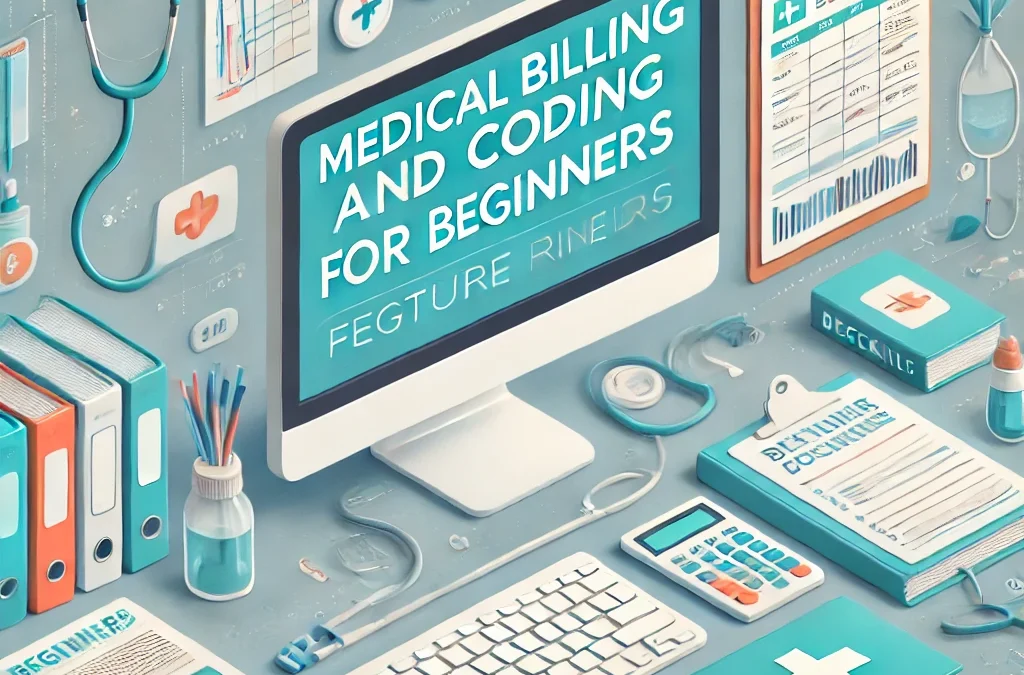Medical Billing and Coding for Beginners
Medical billing and coding are essential components of the healthcare industry, ensuring that healthcare providers get paid and patient records are accurate. If you’re new to this field, this article will help you understand the basics and provide the knowledge you need to get started.
Introduction to Medical Billing and Coding
Medical billing and coding involve translating medical procedures, diagnoses, and services into standardized codes that allow for efficient billing and data management in the healthcare system.
Difference Between Medical Billing and Medical Coding
While they are closely related, medical billing focuses on submitting insurance claims and processing payments, whereas coding involves converting medical records into standardized codes.
Why Beginners Should Learn Both
Understanding both billing and coding can make you more versatile in the job market. Many employers seek individuals with knowledge of both fields, as it streamlines their operations.
The Role of Medical Billing in the Healthcare Industry
Medical billing ensures that healthcare providers are reimbursed for their services. Billers submit claims to insurance companies, track payments, and handle patient billing inquiries.
The Role of Medical Coding in the Healthcare Industry
Medical coders assign codes to healthcare services and diagnoses, ensuring that records are accurate and insurance claims are processed efficiently.
Skills Required to Excel in Billing and Coding
Key skills include attention to detail, problem-solving abilities, knowledge of medical terminology, and familiarity with healthcare regulations like HIPAA.
Common Codes: ICD, CPT, and HCPCS
- ICD: International Classification of Diseases codes for diagnoses.
- CPT: Current Procedural Terminology codes for medical services.
- HCPCS: Healthcare Common Procedure Coding System for supplies and services.
Learning Resources for Beginners
Books, online courses, and webinars are excellent resources for newcomers. Platforms like Coursera and Udemy offer affordable courses.
Online Courses to Get Started
- Medical Billing and Coding by AAPC
- Introduction to Medical Coding by AHIMA
- Healthcare Billing Essentials on Udemy
Certification Options for Beginners
Beginner-friendly certifications include the Certified Coding Associate (CCA) and the Certified Billing and Coding Specialist (CBCS) certifications.
Practical Tips for Newcomers
Start with a basic course, practice coding with real scenarios, and take mock exams to build confidence. Consistency is key to mastering this field.
Challenges Faced by Beginners in Billing and Coding
Beginners often struggle with understanding complex codes and staying updated with changing healthcare regulations. However, continuous learning can overcome these challenges.
Career Opportunities After Learning Medical Billing and Coding
Opportunities include roles as medical coders, billers, auditors, and compliance officers. Many positions offer the flexibility to work remotely.
Conclusion
Medical billing and coding are rewarding fields that offer stable careers in healthcare. By starting with the basics and earning certifications, beginners can quickly enter the workforce and grow in this exciting industry.
FAQs
What is the easiest way to start learning medical billing and coding?
Taking an online course is the easiest way to get started, as it offers flexibility and access to comprehensive materials.
How long does it take to learn medical billing and coding?
On average, it takes 6 to 12 months to become proficient in medical billing and coding.
Do I need a certification to start working in medical billing?
While not always required, certification greatly enhances job prospects and salary potential.
Can medical billers and coders work from home?
Yes, many medical billers and coders enjoy remote work options, especially with the rise of telehealth services.
Is medical coding difficult for beginners?
It can be challenging initially, but with practice and the right resources, anyone can master it.


Recent Comments